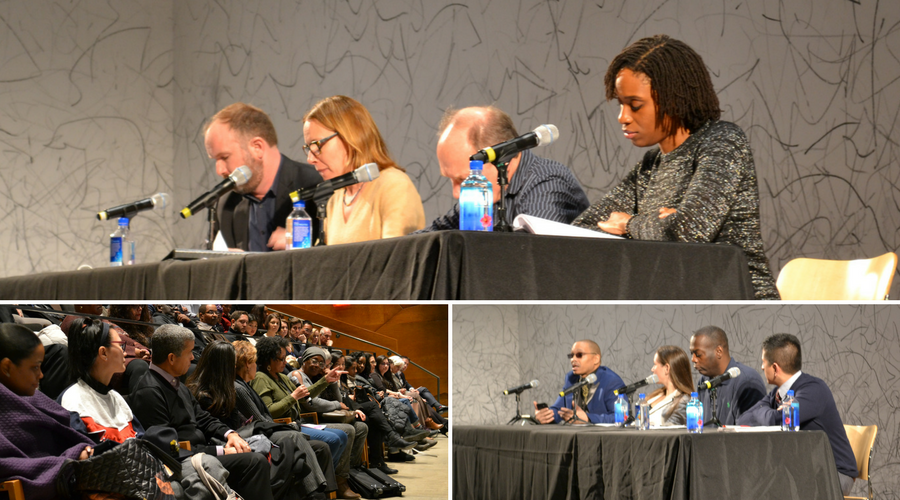How an ancient Greek play challenges our moral responsibility

Photo credit: S:US
Services for the UnderServed reflects on homelessness through theater
Most New Yorkers would have no trouble admitting that they don’t know much about ancient Greek tragedies. Homelessness, which we see all around us, is a different story — many of us witness the most visible parts of homelessness on a daily basis, from street corners to subway cars. But the visibility of homelessness covers up an uncomfortable reality – rarely do we truly hear the voices of people who have experienced it firsthand. Indeed, the urge to ignore uncomfortable social injustices makes this issue one of immense detachment.
Philoctetes, An Evening of Performance and Dialogue, turned this upside down by combining Greek tragedy and homelessness, two seemingly distant topics. The S:US event was presented in partnership with Theater of War, an innovative public health company that uses classic drama to make contemporary issues vivid for audiences.
To a room that included individuals who know the isolation and trauma of homelessness firsthand – residents from S:US shelters, individuals who receive services at our clinics, veterans who live in S:US housing — acclaimed actors Amy Ryan (The Office), Zach Grenier (The Good Wife), and Chinasa Ogbuagu (Nurse Jackie) delivered a powerful reading of scenes from Sophocles’ Greek tragedy Philoctetes, which centers on the story of a soldier who is ostracized by his friends on a desolate island after suffering a debilitating injury.
Following the reading, a panel of S:US service providers and residents led an open discussion with participation from the audience – facilitated by Theater of War’s Brian Doerries – focused on how the play relates to the experience of homelessness and trauma. The performance offered a shared vocabulary to discuss complex social issues. If ‘social distancing’ was not a phrase used in ancient Greece, it was brought to vivid life during the discussion after the play.
“I connected with Philoctetes when he said, ‘I knew only pain, and valor and nobility means nothing,’” said Kerry Hayes, a military veteran and former combat medic who became homeless before moving into S:US’ Knickerbocker veterans’ residence. “As a US Army veteran, I can connect to that very well. This country says, ‘Support your vets,’ while they are in combat or they are overseas serving. But once the troops come home, you feel abandoned. You feel abandoned by your nation. You feel abandoned by the policy makers. It’s a very lonely feeling and it’s very difficult to deal with. Until you learn how to embrace your pain and turn your pain into positive energy.”
“Good drama touches us emotionally, can make us think differently, exposes our preconceptions, our prejudices, and may move us to action,” said Donna Colonna, CEO of S:US. “To have an inclusive and just society is hard to do, but talking about it and discussing it is important, and is certainly a start.”
Through the insights and testimonials shared throughout the discussion, one central theme tied Sophocles’ words from over two thousand years ago to modern-day social injustices: the marginalization of our neighbors should stir us to act. As one audience member noted, “With this play, Sophocles says, ‘You hear the cries, now what are you going to do about it?”
March 6, 2018
Donate now to support S:US’ work to help all New Yorkers find safe, affordable homes of their own.
Learn more about S:US homeless services programs.
